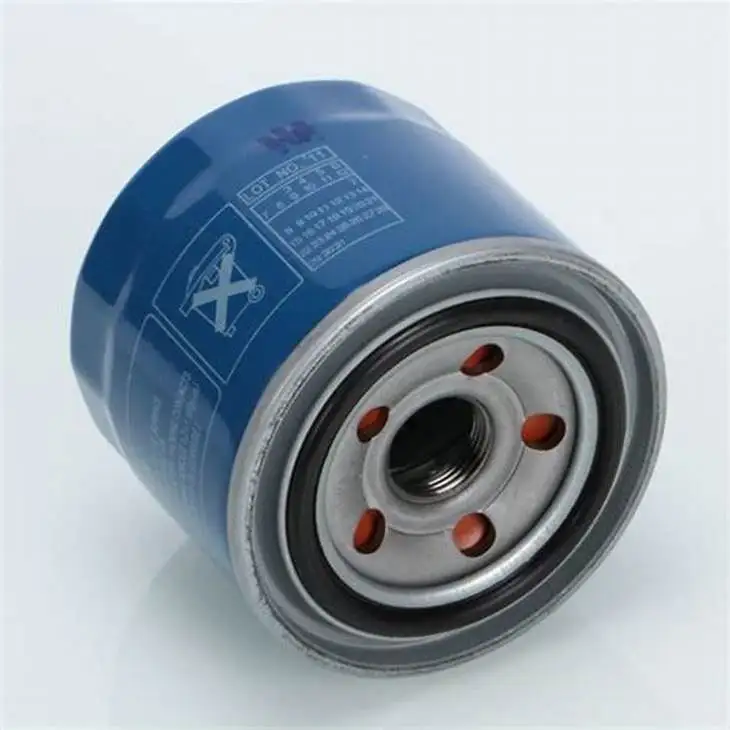Oct . 11, 2024 12:33 Back to list
Benefits of Using Premium Quality Air Intake Filters for Your Vehicle
The Importance of High-Quality Intake Air Filters
In the realm of automotive performance and efficiency, one element often overlooked is the intake air filter. This seemingly simple component plays a crucial role in the overall health and function of an engine. A high-quality intake air filter is not just a luxury; it is a necessity for anyone seeking to maintain their vehicle’s performance, extend its lifespan, and improve fuel efficiency.
Understanding the Role of Intake Air Filters
The primary function of an intake air filter is to prevent dirt, dust, debris, and other contaminants from entering the engine. When an engine operates, it requires a continuous flow of air to mix with fuel for combustion. If contaminants enter the engine, they can cause significant damage, leading to increased wear and tear on engine components. This may result in costly repairs and reduced engine efficiency.
High-quality air filters are designed to offer superior filtration while allowing optimal airflow. This balance is imperative because restricted airflow can lead to engine performance issues, including decreased power and acceleration. A clean filter facilitates better air intake, ensuring that the engine runs smoothly and efficiently.
Benefits of Using High-Quality Intake Air Filters
1. Enhanced Engine Performance A high-quality intake air filter ensures that the engine receives clean air, promoting better combustion. When the engine can breathe easily, it operates more efficiently, resulting in improved horsepower and torque. This essential boost is particularly noticeable in performance-driven vehicles and in scenarios demanding higher output, such as towing or off-road driving.
2. Fuel Efficiency Improved airflow can directly impact fuel economy. When an engine performs optimally due to cleaner air intake, it uses fuel more efficiently. Over time, this can lead to significant savings at the pump. Many vehicle owners have reported increased mileage and reduced gas costs after upgrading to a high-quality intake air filter.
high quality intake air filter

3. Longevity of Engine Components Contaminants can cause premature wear on engine parts, leading to expensive repairs or replacements. By using a high-quality intake air filter, you significantly reduce the risk of damage. This proactive measure can prolong the lifespan of the engine and its components, offering better value in the long run.
4. Reduced Emissions Engines that are not operating efficiently often produce higher emissions. A high-quality intake air filter helps ensure the engine runs cleaner, contributing to lower emissions and a more eco-friendly vehicle. This is particularly important in today's environmentally-conscious landscape, where vehicle emissions regulations are becoming stricter.
5. Ease of Maintenance High-quality air filters often come with longer replacement intervals, meaning you won't have to change them as frequently. While standard filters may need to be changed every 12,000 to 15,000 miles, premium options can last upwards of 30,000 to 50,000 miles, depending on driving conditions. This can translate to less frequent maintenance and savings on replacement costs.
Choosing the Right Intake Air Filter
When selecting a high-quality intake air filter, there are several factors to consider. Firstly, compatibility with your vehicle’s make and model is crucial. Check the manufacturer’s specifications to ensure the filter will fit properly. Next, look for filters that boast synthetic or multi-layered media, as these materials provide superior filtration. Additionally, consider reputable brands with positive reviews from other consumers and professionals.
Conclusion
Investing in a high-quality intake air filter is a smart decision for anyone who values their vehicle's performance and longevity. From enhancing engine efficiency and fuel economy to reducing emissions and prolonging component life, the benefits are substantial. By ensuring that your engine receives clean, unrestricted airflow, you can enjoy a smoother, more responsive driving experience while safeguarding your investment. Remember, the air that enters your engine is as vital as the fuel that powers it—choose wisely!
-
Toyota Corolla Hatchback Cabin Air Filter – High Efficiency & Easy Installation
NewsJul.08,2025
-
Premium Canister Fuel Filter Supplier High Quality Oil Filtration Solutions
NewsJul.08,2025
-
Premium Car Filter Oil Solutions Leading Car Oil Filter Exporter Hyundai Car Oil Filter Exporters
NewsJul.08,2025
-
Buy 17x21x1 Air Filter – Improve Air Quality & HVAC Efficiency Affordable Air & Cabin Air Filter Cost
NewsJul.07,2025
-
High-Performance Filter Element Fuel – Durable, Efficient & Cost-Effective Solutions
NewsJul.07,2025
-
High-Quality Engine Filter and Cabin Filter for Superior Airflow Affordable Cabin and Engine Air Filter Cost
NewsJul.07,2025


